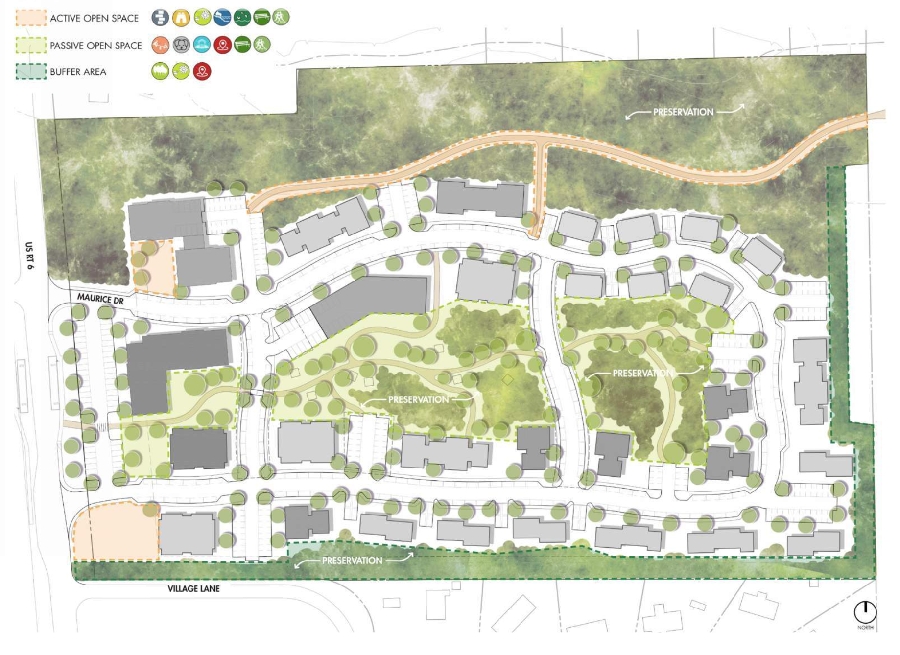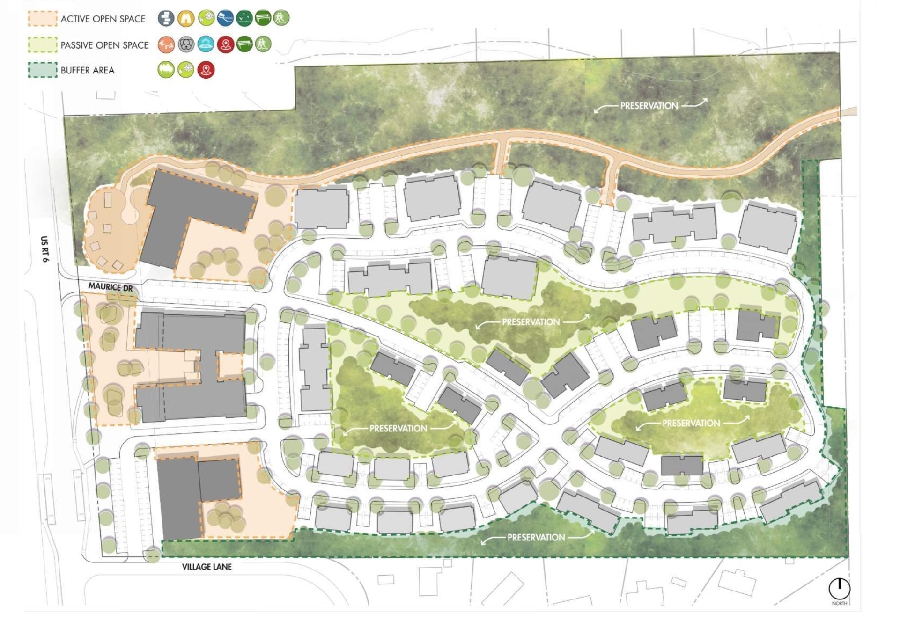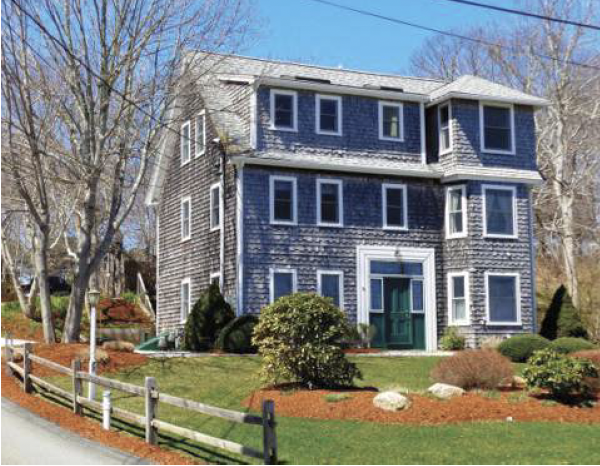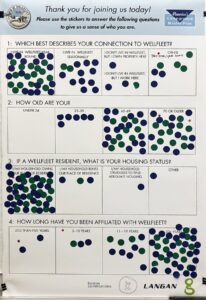This article was updated on Aug. 5, 2025.
WELLFLEET — The select board on July 8 considered 11 applicants for six open seats and two alternates on the Maurice’s Campground Planning Committee charged with advising on development of affordable housing on the 21.25 acres purchased for that purpose in 2022.

Five applicants were committee members seeking reappointment, and a sixth, Robert Wagner, has been an alternate member of the committee. The five newcomers were Lauren Arcomano, Marianne Boswell, Michelle Cutrali, Robert Dupuis, and Jeff Sacks.
The board chose Arcomano and Sacks and reappointed Carl Sussman, Gary Sorkin, Roland Blair, and Emily Achtenberg. Committee members serve three-year terms.
The appointments come as the project enters a new stage. At town meeting in April, voters approved $125,000 for consultants to develop a request for proposals from developers. That RFP is expected to reflect the “master plan” that Boston architecture firm Studio G has helped the town develop over the last year and which envisions 250 units at Maurice’s.
Adapting the master plan into a desirable RFP, Sussman said, would be a central task for the committee in the coming year. Sussman estimated that an RFP would be issued no sooner than mid-2026. The town’s goal is to break ground on the development by 2028.
On July 23, at the reconstituted committee’s first meeting, members voted for a shift in leadership: Sussman and Sorkin are now committee co-chairs, and former chair Ryan Curley is now vice chair.
Curley, who is also a select board member, said he was interested in the leadership switch to lighten a heavy workload but also, he said, to avoid slowing the committee’s work.
In June, Curley had been asked by Arcomano to recuse himself from select board votes relating to Maurice’s Campground because of his role on the planning committee.
“I think it would be helpful if somebody else were to be the chair,” he said, recommending that Sussman, the former vice chair, take that role.
Sussman agreed — provided that Sorkin, a full-time resident, serve as co-chair. Sussman, a longtime consultant on community development projects and housing, lives in Newton and said he didn’t think a seasonal resident alone should lead the committee.
The planning committee voted unanimously to appoint Sussman and Sorkin as its co-chairs.
Boswell and Dupuis were appointed nonvoting alternates. Select board member Barbara Carboni cited Dupuis’s experience with ADA compliance — he is a member of the town’s disabilities commission — as a reason for his appointment.
The New Members
Select board members in making the appointments cited Arcomano’s and Sacks’s experience and their differing views on affordable housing at the campground.

Chair John Wolf told the Independent he was persuaded by accounts of Sacks’s experience in affordable housing. Sacks, who lives in Newton, is senior counsel at the law firm Nixon Peabody. He told the Independent he has worked in affordable housing and community development for over 40 years and is a board member of 2Life Communities, a senior housing developer in metro Boston.
He spent a lot of that time, he said, on affordable housing projects on Nantucket — including the Academy Hill Apartments, which he helped to convert from a school to 27 housing units in 1986.
Maintaining consistent local support is essential for such projects’ success, he said. On Nantucket, support “kind of ebbed and flowed over the years,” he said. “One of the things I have appreciated in Wellfleet is the long-term and relatively steady commitment to meeting affordable housing needs.
“I think the master plan has all the right elements,” Sacks added, highlighting seasonal workforce housing and the “Cape Cod village” style of buildings. The way those elements are realized, he said, would depend on developers’ proposals.
Arcomano, executive director of the Chatham Conservation Trust, said she would bring a “fresh perspective” to the planning committee as a rental tenant in Wellfleet and as an environmentalist.
She has spoken against the proposals for the site both at April’s town meeting and at a June meeting where a proposal to amend zoning rules for a new district at Maurice’s was discussed.
At the July 23 meeting, she said that while she supports a plan for housing on the site, she thought the master plan needed work. As a committee member, she said, she hopes to bring attention to issues like tree coverage, bike and kayak storage, and soundproofing.
“I’m concerned about our water usage and concerned about the overall scale of the project,” she told the Independent.
“Wellfleet voters think this is a good thing to do, and it is a good thing to do,” Arcomano said of the original plan to purchase Maurice’s for housing. But, she added, she didn’t want to lose sight of the “bigger picture,” which she said is the environment. She wants to see fewer than the 250 units in the master plan.
“Maurice’s is blighted as it is,” Arcomano said, referring to the number of cesspools on the property. A cluster system to replace those cesspools, reducing nitrogen runoff at the site, is planned for the development.
Select board member Sheila Lyons recommended Arcomano’s appointment on July 8. “She is not ‘pro’ the proposal,” Lyons said, “But I believe she would bring positive recommendations and not just say it cannot be done.”
Editor’s note: An earlier version of this article, published in print on July 31, inaccurately listed Robert Wagner as a “newcomer” among the applicants for membership on the Maurice’s Campground Committee. Wagner has been serving as an alternate member of the committee.





